Are you googling for hours, looking for the perfect surf camp? Reading reviews, checking out the area online, and then finally… booking. Whether you’ve chosen the right surf camp for your vacation dreams usually only becomes clear when you arrive. Finding a surf camp that matches your vibe and expectations can be a real challenge, with so many options, locations, and camps for every skill level.
Here are the “Must-Checks” for comparing surf camps, so your next surf trip is all about the good surprises!
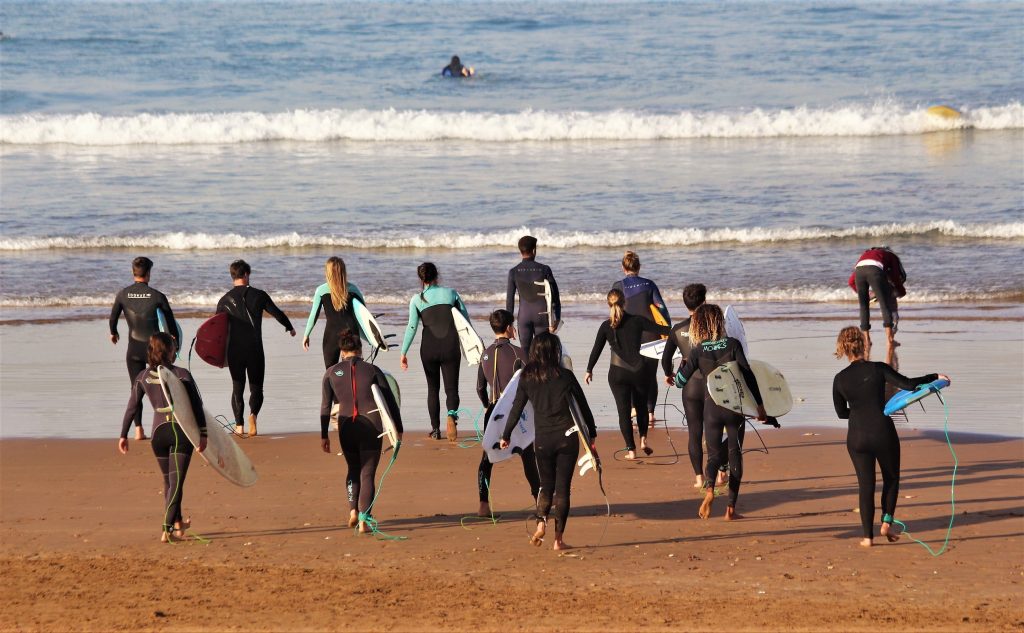
1. Atmosphere & Team – The Vibe Has to Be Right
A surf camp is way more than just a bed and a board – it’s a place where people come together, united by a love for surfing and a sense of community. You can often get a good idea of a camp’s vibe just by looking at its website or social media channels. Are there photos of group dinners, bonfire hangouts, and a team that seems to embody that laid-back, “stoked-on-life” attitude?
A friendly team that genuinely cares can make all the difference, especially when everyone is living, eating, and surfing together. You’re not just there to surf but to enjoy an experience that feels like a second home. If you’re unsure about the vibe, just reach out to the camp by email or phone. A quick message is often all it takes to see if there’s a connection – because it’s not just about waves, but the environment you’ll enjoy them in.
Pro Tip: Read reviews from other travelers who’ve stayed at the camp. You’ll find plenty of feedback on travel sites like Tripadvisor!
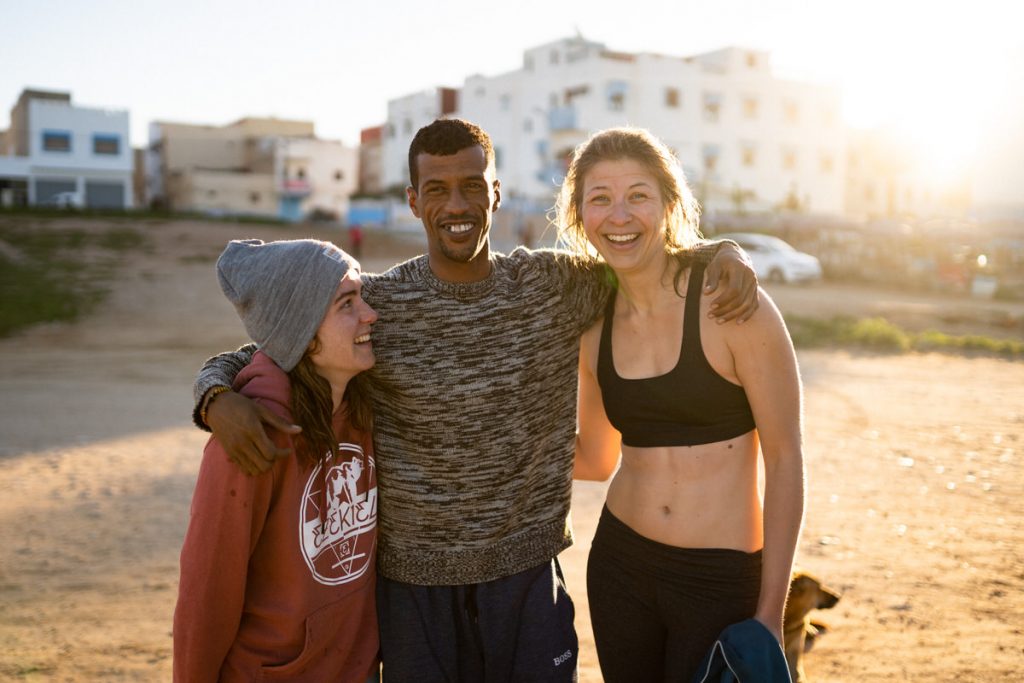
2. Lesson Options – Courses for Every Level
Surfers come with all kinds of experience levels. Beginners and experienced surfers in the same group? Not ideal! Good camps separate their groups by skill level, so newbies aren’t out of place among the pros in the lineup.
In your surf camp search, look for camps with smaller group sizes. The smaller the group, the better the instructor can focus on each person. Beginners get the guidance they need, and more advanced surfers get lessons tailored to their level – ideal for improving your skills faster.
Pro Tip: Ask or check how the camp divides its courses and if flexible schedules are available – many camps offer half-day lessons so you can still explore the surroundings.
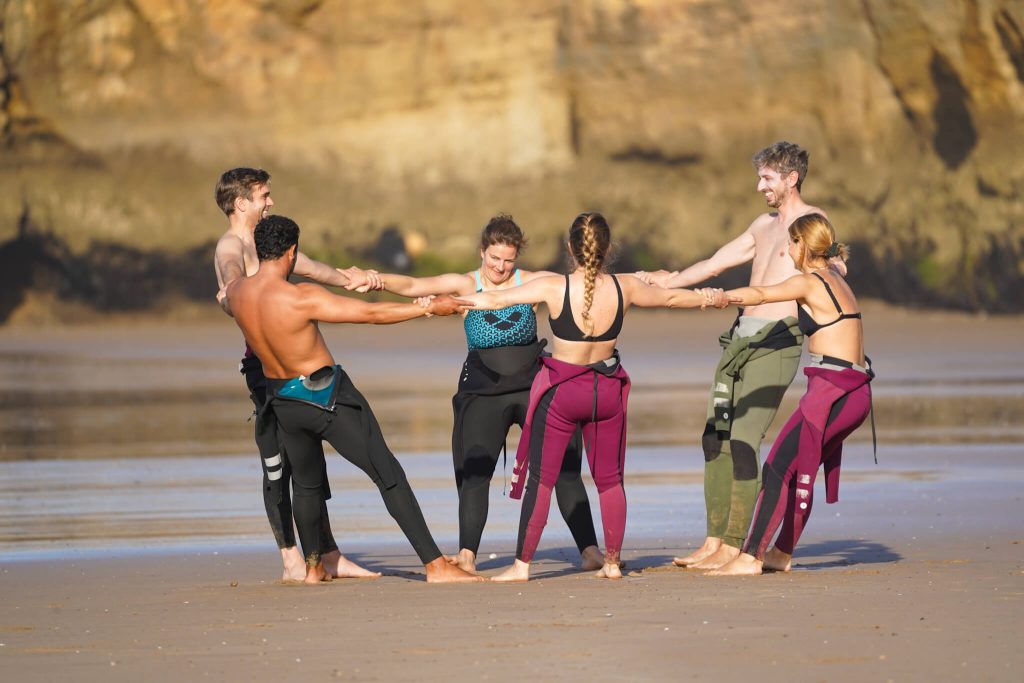
3. Feedback & Improvement – Keep Progressing
Everyone benefits from solid feedback – especially in surfing! A surf camp that offers regular feedback sessions really stands out for quality. After all, endless praise won’t help; you need actionable feedback, like a tip on technique or a video showing where things could improve.
Many camps now use photo and video analysis, which can be super helpful. Your instructor can show you what’s working well and where you can fine-tune. Video reviews might bruise the ego a bit (no one likes seeing their first wipeout!), but the progress is well worth it!
Pro Tip: Feel free to ask if the camp offers these kinds of feedback sessions – a great addition for improving faster.
4. Equipment & Boards – Well-Maintained and Varied
The gear in a camp is central to your experience on the water. A good camp doesn’t just provide a variety of options but keeps the boards and wetsuits in top condition. From sturdy softboards for beginners to shorter boards for advanced surfers, a camp should have equipment suitable for every level.
Well-maintained gear is also a sign the camp takes your safety seriously. If the boards are in good shape and the wetsuits are clean, that’s a positive indicator for the camp overall.
Pro Tip: Ask the camp in advance about their board selection and how they maintain it. Many camps also let you take equipment to explore other surf spots if you’re keen to try something new.
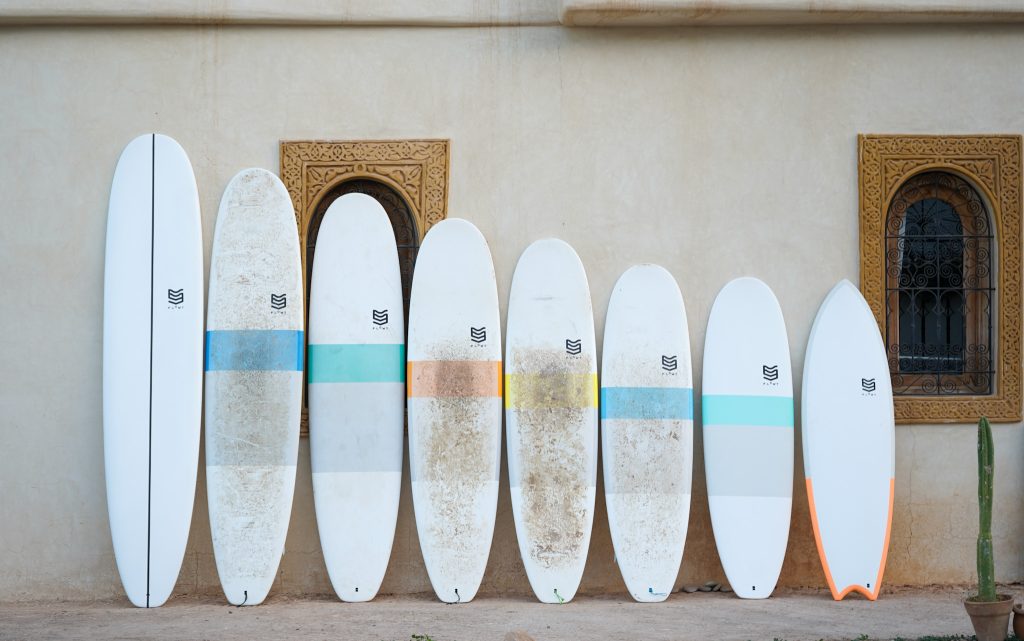
5. Surf Spots & Flexibility – The Best Waves at the Right Time
Whether the camp is at a world-renowned spot or a quiet, secluded beach, the most important thing is that the conditions are right! Flexibility is key here: A good camp checks surf conditions every morning and adjusts the daily schedule as needed.
A flexible schedule means instructors can take you to the best spot for the day – which can be a different beach each time. That way, no day goes to waste, and you’ll get the best possible waves for your skill level.
Pro Tip: Ask how the camp chooses its surf spots and if there are multiple options nearby. Some camps also offer guided “surf safaris”, letting you explore a new spot every day.
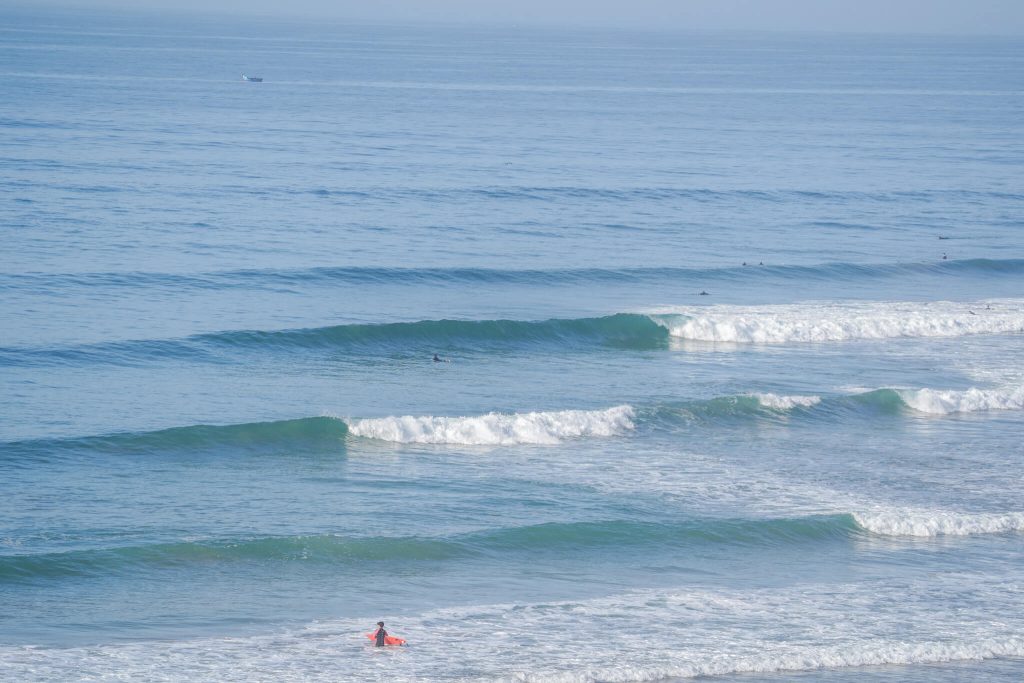
6. Accommodation – Your Space to Recharge After the Session
Surfing is amazing, but having a comfortable place to recharge afterward is just as important. Many surf camps offer different room options: from shared dorm-style rooms with a fun hostel vibe to cozy single or double rooms for added privacy. A look at the website or some reviews can tell you a lot about the setup and cleanliness of the accommodations. Clean rooms and well-kept bathrooms already give you a sense of comfort and show the camp values guest experience.
You get to decide what type of vibe feels right for you: rustic or boho-inspired, modern or minimalist. Some camps even offer extras like a pool, hammocks in the garden, or a shared terrace for unwinding after the session. A good mix of stylish relaxation areas and cozy nooks makes it easy to kick back and feel at home.
Bonus Tip: Sustainability & Food
Eco-friendly surf camps aren’t just great for the planet but also for the future of surfing itself. Sustainable camps often use environmentally-friendly products, avoid plastic, and source fresh, local ingredients.
Many camps now offer vegan or vegetarian options and take care to accommodate guest preferences. Sustainability and surfing are a natural fit, so if you value a green approach, you’ll feel right at home in an eco-conscious camp.
Conclusion: The Perfect Surf Camp is Waiting for You!
Choosing the right surf camp is crucial to how awesome your surf trip will be. Finding the perfect camp may take some research, but it’s definitely worth it! By keeping these key factors in mind, you’re setting yourself up for an incredible surf adventure.
Final Tip: You can find answers to all the above points on our website, and if any questions remain, just reach out and give us a grilling 😉





